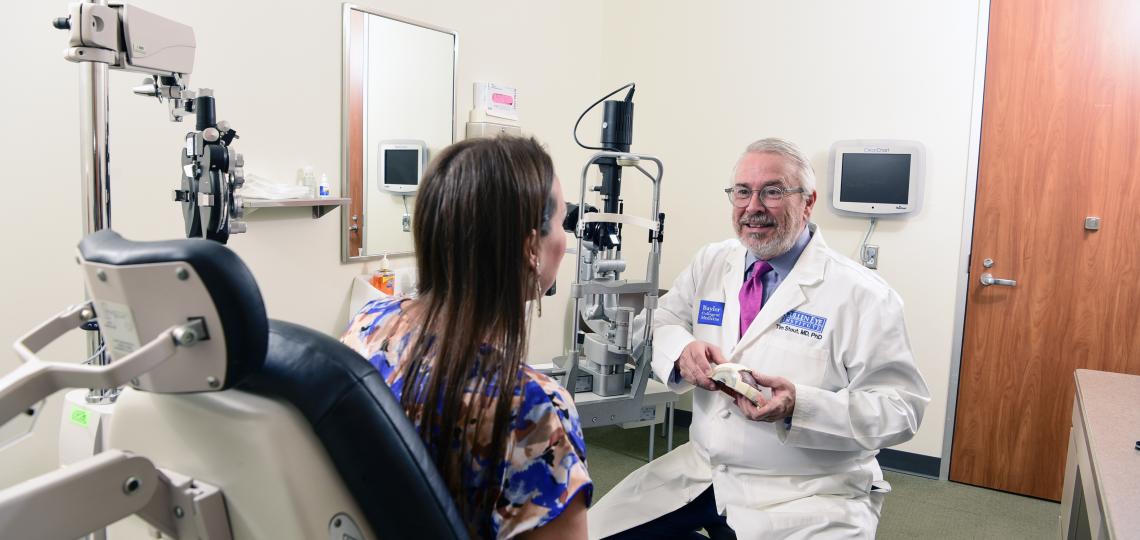Expert Neurologist Andalusia: Comprehensive Mind Health Providers
Expert Neurologist Andalusia: Comprehensive Mind Health Providers
Blog Article
Is Refractive Surgical Treatment Right for You? Factors to Consider for Better Eyecare
In the realm of eye care, the decision to go through refractive surgical procedure is a significant one that requires thoughtful consideration. As individuals look for quality and freedom from the restraints of corrective lenses, numerous elements enter into play when establishing the suitability of such a procedure. From the complexities of one's ocular health to the details of personal expectations and day-to-day habits, each facet holds significance in the broader landscape of refractive surgical procedure candidacy. By reviewing these crucial aspects with care and precision, a more clear course in the direction of educated decision-making emerges.
Eye Health And Wellness Examination
When thinking about refractive surgery, a detailed eye health examination is critical to analyze the viability of the treatment for each and every individual. cardiologist andalusia. This evaluation involves a series of tests and evaluations conducted by an eye treatment specialist to figure out the general health of the eyes, the presence of any type of hidden problems, and the security of the refractive mistake
Throughout the assessment, different aspects are taken into account, such as the individual's clinical background, current eye prescription, corneal thickness, pupil dimension, and tear film high quality. These analyses help to identify any contraindications to refractive surgical procedure, such as corneal abnormalities, cataracts, or neglected eye infections. Additionally, the assessment assists to manage person assumptions pertaining to the potential results of the surgical procedure based on their unique eye qualities.
Ultimately, the eye wellness examination is essential in guaranteeing the safety and security and performance of refractive surgical treatment, as it provides valuable insights into the individual's eye health and wellness status and helps establish the most suitable treatment choices for achieving ideal visual outcomes. (eye center andalusia)
Way Of Living Analysis
A detailed way of living evaluation is essential in establishing the suitability of refractive surgical treatment for a person's visual adjustment needs. Way of life aspects such as occupation, pastimes, and day-to-day activities play a crucial role in the decision-making procedure concerning refractive surgery. People with professions that include a high degree of physical task or exposure to ecological components may have different aesthetic needs compared to those with less active workdesk work. Recognizing exactly how an individual's way of living may impact their vision post-surgery is vital for handling expectations and making certain ideal outcomes.
Moreover, way of life behaviors such as sporting activities participation, exterior activities, or also skincare regimens can influence the recovery procedure and total success of refractive surgery. By conducting an extensive lifestyle evaluation, eye care specialists can tailor their referrals and treatment plans to satisfy the special needs of each client, ultimately leading to boosted aesthetic outcomes and contentment.
Assumption Placement

Individuals require to understand that while many individuals accomplish 20/20 vision or far better following refractive surgery, some may still call for glasses for particular activities like reading or driving at evening. Handling these assumptions helps avoid frustration and frustration post-surgery, leading to a more positive total experience for the client.
Threat Evaluation

Elements that might raise the threat of problems consist of age, certain medical conditions like autoimmune diseases, unpredictable vision prescription, thin corneas, and unrealistic person assumptions. Additionally, choosing a seasoned and experienced doctor, adhering to pre and post-operative treatment instructions faithfully, and disclosing any appropriate clinical background can assist mitigate threats.
To reduce the likelihood of complications, eye doctors carry out detailed pre-operative examinations to recognize any kind of contraindications to surgery. try this web-site They additionally review the potential risks and advantages with people throughout the examination procedure. By involving in open interaction and shared decision-making, both the client and the ophthalmologist can function together to figure out if refractive surgical treatment is the appropriate selection based on individual threat accounts and desired outcomes.
Examination Significance
Considering the critical function of educated decision-making in examining threats and potential issues in refractive surgical procedure, the appointment process holds significant significance in directing individuals towards optimum end results. Throughout the assessment, the ophthalmologist reviews the individual's eye wellness, refractive errors, and general suitability for surgery. This first assessment is vital in identifying the most suitable treatment for every individual, taking into consideration elements such as corneal thickness, student dimension, and existing eye problems.
Furthermore, the consultation works as a chance for people to review their assumptions, problems, and any type of questions they might have regarding the surgical treatment. Clear communication between the doctor and the individual is crucial to make sure realistic expectations and a complete understanding of the potential threats and advantages involved.
In addition, the assessment enables the specialist to explain the various surgical alternatives readily available, their particular results, and the post-operative treatment called for. This detailed conversation equips patients to make knowledgeable choices about their eye treatment, causing much better satisfaction and results post-surgery.
Verdict
In final thought, people thinking about refractive surgery should go through a comprehensive eye health evaluation, assess their way of life behaviors, straighten their assumptions with possible outcomes, analyze the affiliated risks, and focus on consultations with eye care professionals. These factors play an important duty in identifying the viability of refractive surgery for each and try this website every person, ensuring ideal results and satisfaction with the procedure.
Individuals considering refractive surgery commonly have high assumptions concerning the results, expecting ideal vision without the need for article source glasses or get in touch with lenses. While refractive surgical treatment can considerably enhance vision and lower reliance on aesthetic help, it is essential for individuals to understand that outcomes might vary based on specific variables such as the level of refractive error, corneal thickness, and general eye health and wellness.
By involving in open interaction and shared decision-making, both the patient and the eye doctor can work with each other to establish if refractive surgery is the ideal selection based on individual risk profiles and preferred results.
Taking into consideration the important function of notified decision-making in evaluating threats and prospective difficulties in refractive surgery, the consultation procedure holds substantial significance in guiding individuals towards optimum results. During the examination, the eye doctor assesses the individual's eye health and wellness, refractive mistakes, and overall viability for surgery.
Report this page